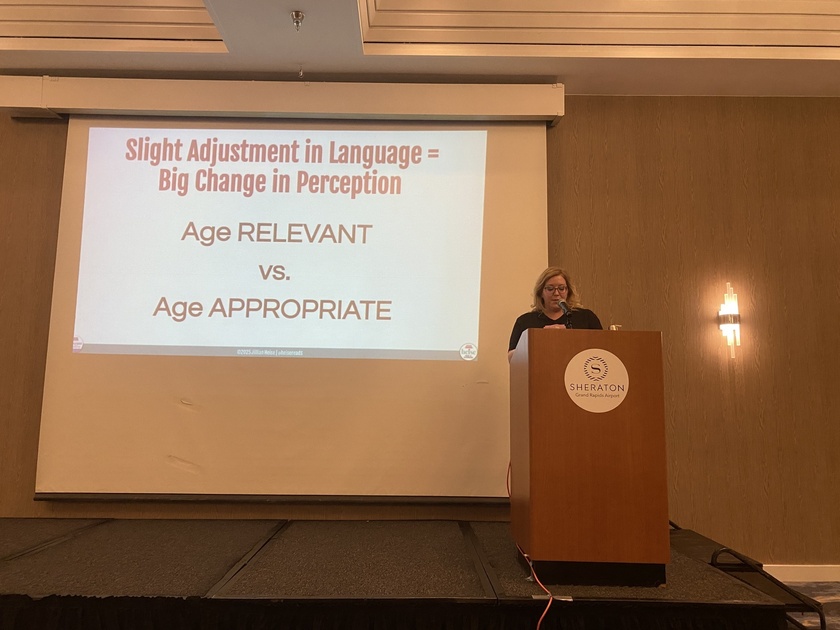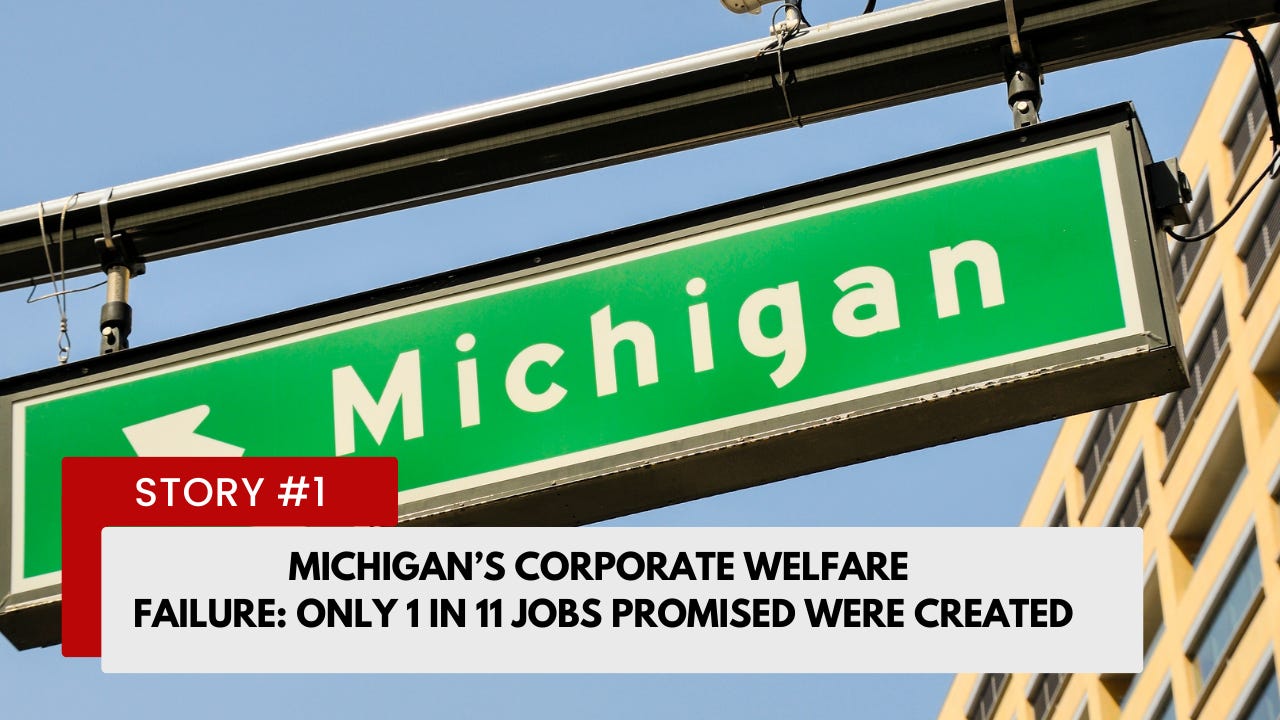
MIDLAND, Mich. — As the Michigan Legislature considers a new wave of corporate welfare handouts during its lame-duck session, a new study from the Mackinac Center for Public Policy sheds light on two decades of broken promises tied to taxpayer-funded business subsidies. The study reveals that only 9% of the jobs announced in major state-sponsored deals from 2000 to 2020 were ever created.
Analyzing front-page headlines from the Detroit Free Press, the study found that while companies promised 123,060 jobs through subsidy agreements, only 10,889 materialized. Worse, half of the companies awarded deals created no jobs at all, and just 15% of companies met or exceeded their job projections.
“News headlines frequently tout the promise of new jobs, but rarely report when the programs fail to deliver on their promises,” said James Hohman, director of fiscal policy at the Mackinac Center and author of the study. “This creates a misunderstanding among the public that job announcements are the same thing as actual jobs created. Yet lawmakers continue to rubber-stamp these ineffective and costly deals.” Click here to read more.
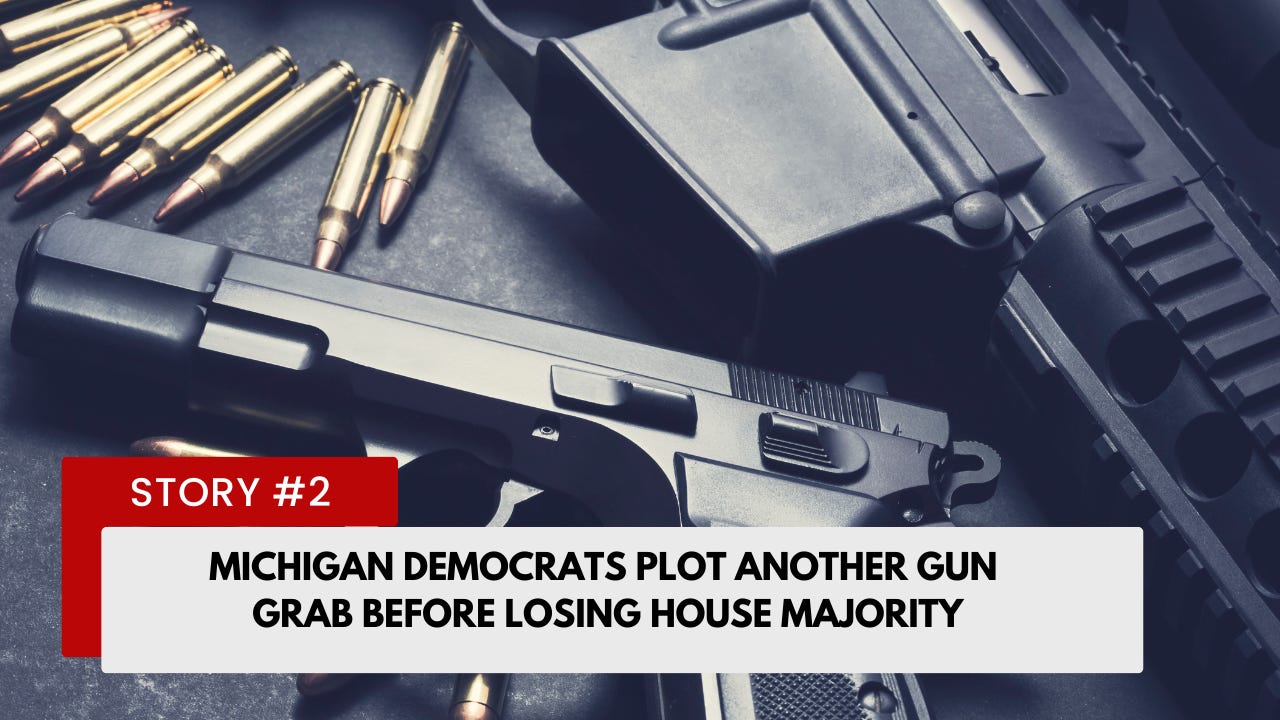
LANSING, Mich - An eleventh hour move ahead of Thanksgiving — teeing off the Michigan Legislature’s upcoming lame duck session — shows Democrats on the warpath with vague legislation aimed at dragging the firearms industry into lawfare for others’ conduct under the banner of public nuisance laws.
“Nuisance is the great grab bag, the dust bin, of the law,” declared the Michigan Supreme Court in a 1959 decision, and now Michigan Democrats want to drag gun manufacturers and sellers into it.
A partisan-backed update to public nuisance laws, backed by 19 Democrats and set for review when the legislature returns December 3, could expose purveyors of guns to lawfare and legal scrutiny by the Michigan Attorney General.
An amendment to the Revised Judicature Act of 1961’s public nuisance laws could now implicate gun manufacturers and sellers in others’ conduct — a move of questionable precedent and constitutionality.
The update would attempt to hold the firearms industry and its personnel liable as “proximate causes” to public nuisances, that is, for the actions of others. Click here to read more.
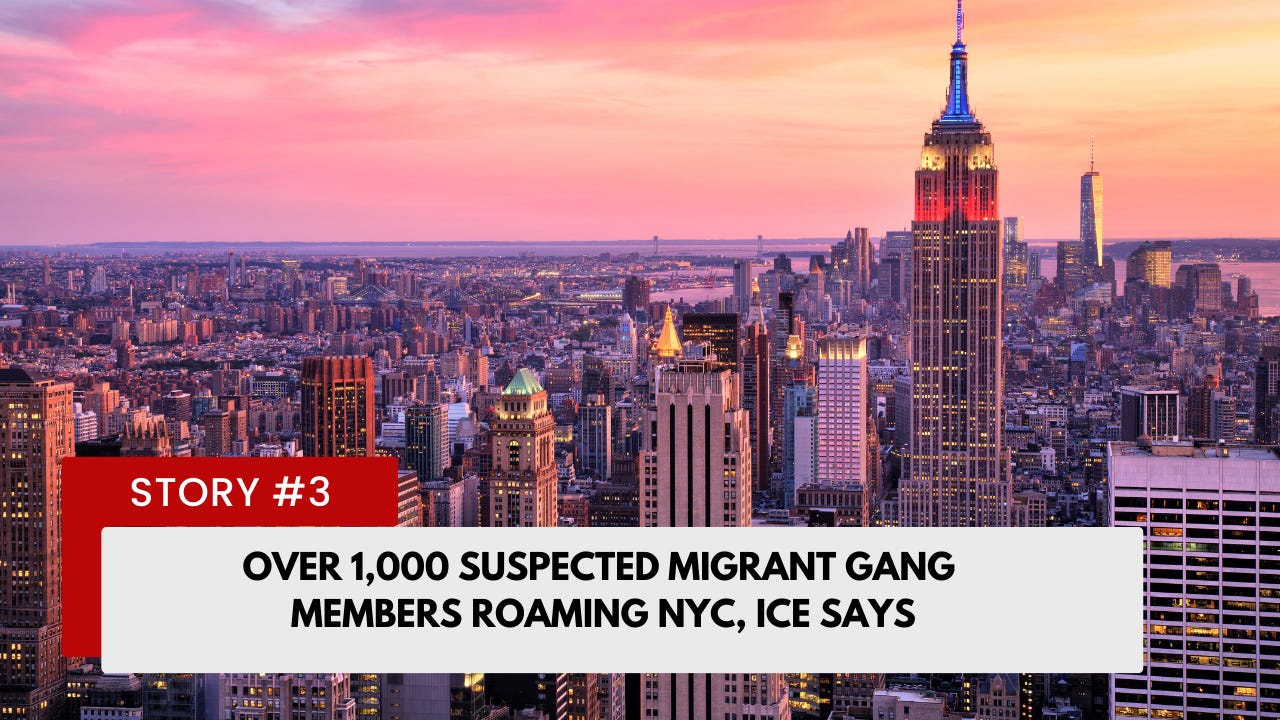
NEW YORK, NY - More than 1,000 illegal migrants in New York City are likely gang members who are free to roam the streets, new federal data shows.
A total of 1,053 migrants in the Big Apple are “suspected or known gang members,” according to Immigration and Customs Enforcement (ICE) data obtained by the New York Post.
The city is still groaning under an influx of more than 223,000 illegal migrants over than past two years.
An eye-popping 759,218 people who crossed the border illegally were living in the city as of November 17, according to federal authorities.
Of those migrants, 58,626 have been convicted of crimes or had criminal charges pending, ICE data shows. Click here to read more.

WASHINGTON D.C. - A congressional subcommittee concluded its two-year investigation on the coronavirus pandemic on Monday, finding that COVID-19 likely originated from a lab in Wuhan, China, and that social distancing and masking were not backed with scientific data.
The Select Subcommittee on the Coronavirus Pandemic released its final 520-page report that stated "COVID-19 most likely emerged from a laboratory in Wuhan, China."
In support of the "lab leak" theory, the report said the subcommittee learned that the virus had a biological characteristic that is not found in nature and that data showed all COVID-19 cases stemming from a single introduction to humans.
"By nearly all measures of science, if there was evidence of a natural origin it would have already surfaced," the report says.
The report also noted that China’s foremost SARS research lab is in Wuhan, "which has a history of conducting gain-of-function research at inadequate biosafety levels," and that researchers at the lab "were sick with a COVID-like virus in the fall of 2019, months before COVID-19 was discovered at the wet market."
Initial rumors swirled at the beginning of the pandemic that China’s wet markets, which are known for selling meat, fish, produce and exotic animals in unsanitary conditions, were the origin of the virus. Click here to read more.
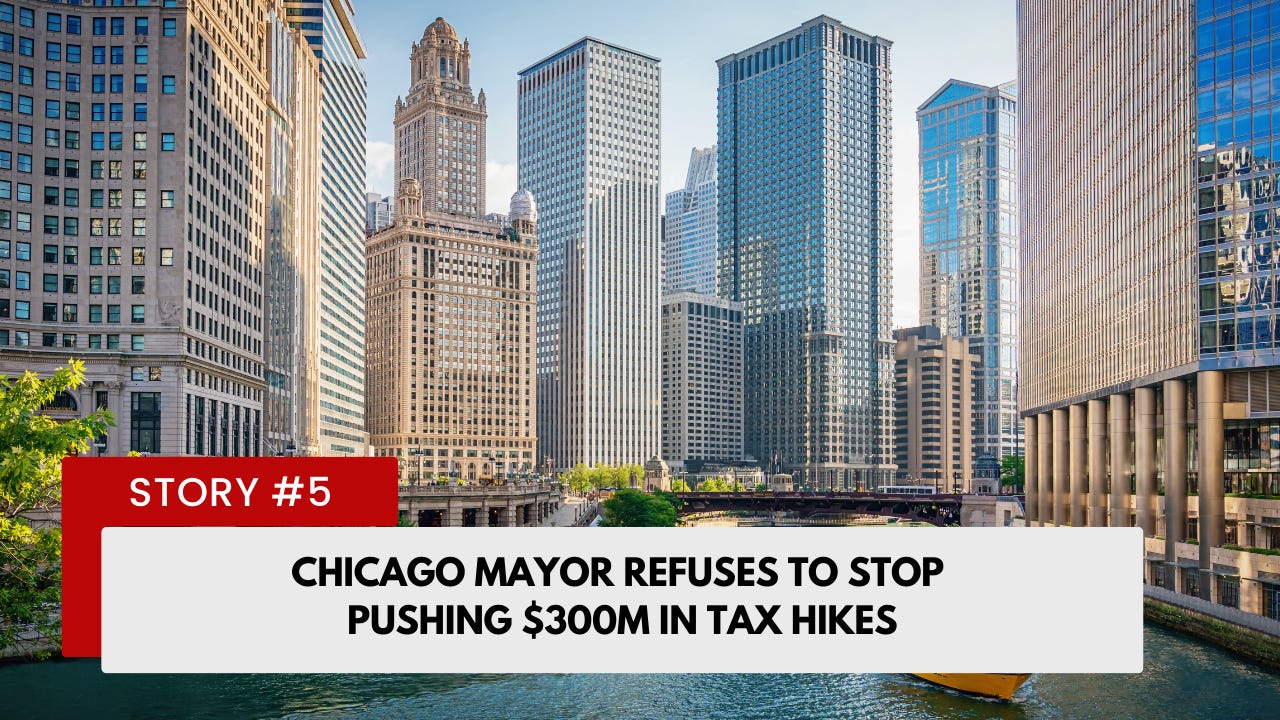
CHICAGO, IL - Chicago Mayor Brandon Johnson wanted a $300 million property tax hike for his big budget. All 50 aldermen said “no.” So then he asked for $150 million and a 35% tax on liquor. Johnson fails to admit it’s not about taxes, it’s about making changes.
All 50 Chicago aldermen told Mayor Brandon Johnson he couldn’t have his $300 million property tax hike, so he asked for $150 million in property taxes, $128 million in cloud computing taxes, $10 million in streaming service taxes and $10.6 million from a 35% hike in liquor taxes.
Maybe Johnson should recognize “no” to $300 million in new taxes means “no” to $300 million in new taxes. Instead of asking for it a different way, he needs to stabilize Chicago’s finances by backing pension reform, cutting non-essential spending from his $17.3 billion budget and auditing departments for cuts. He needs to safeguard public safety and stop the financial games that deny Chicago long-lasting fiscal stability. Click here to read more.

